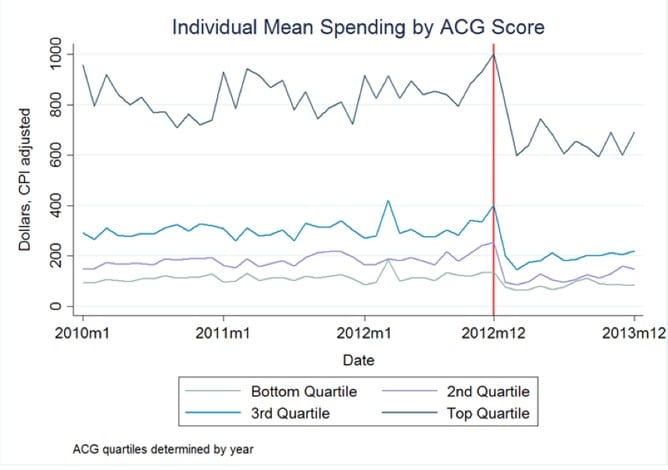Medical Spending Falls as Deductibles Rise
Is that surgery really worth it? Do I really value that cancer screening? Is that extra imaging service necessary?
These are the kinds of questions consumers ask themselves when their insurance plans require higher cost sharing for medical services. This is a new reality in the US health care system, as large employers offering coverage have moved aggressively toward less generous, high-deductible insurance offerings.




